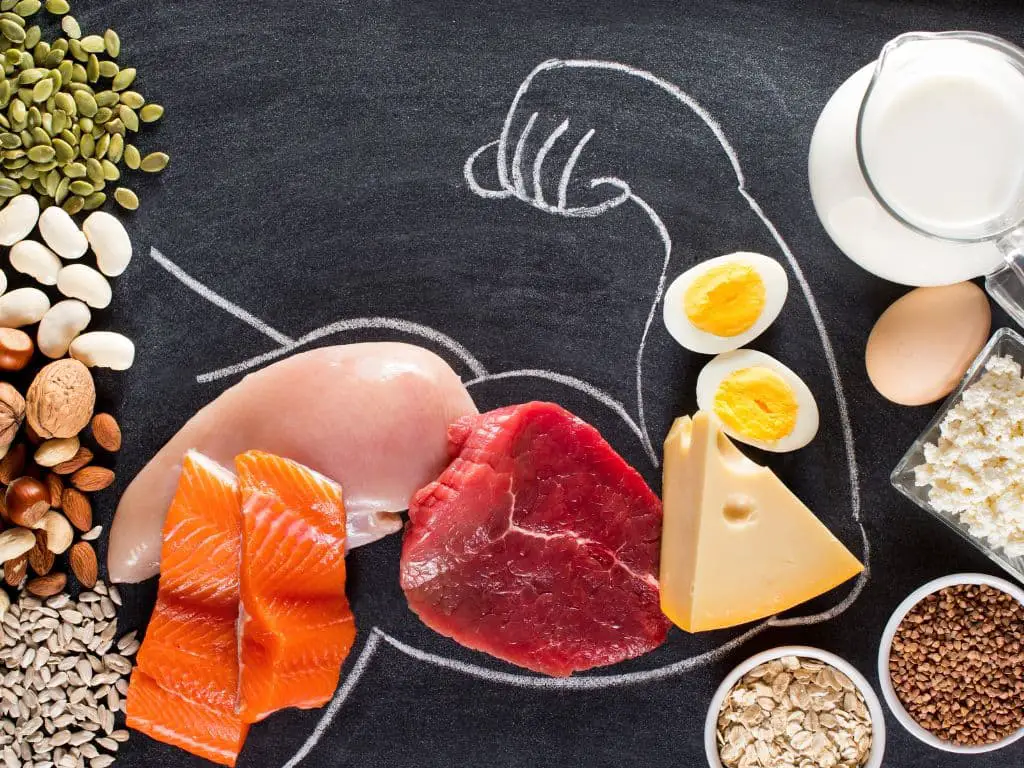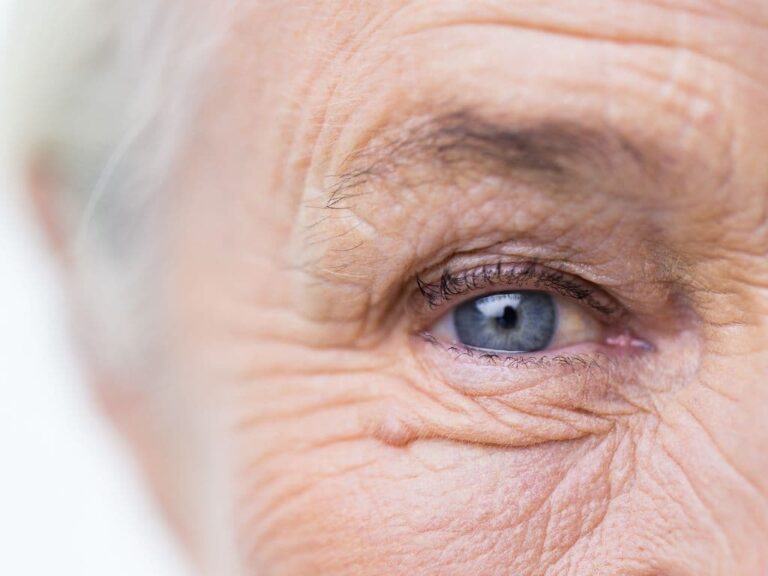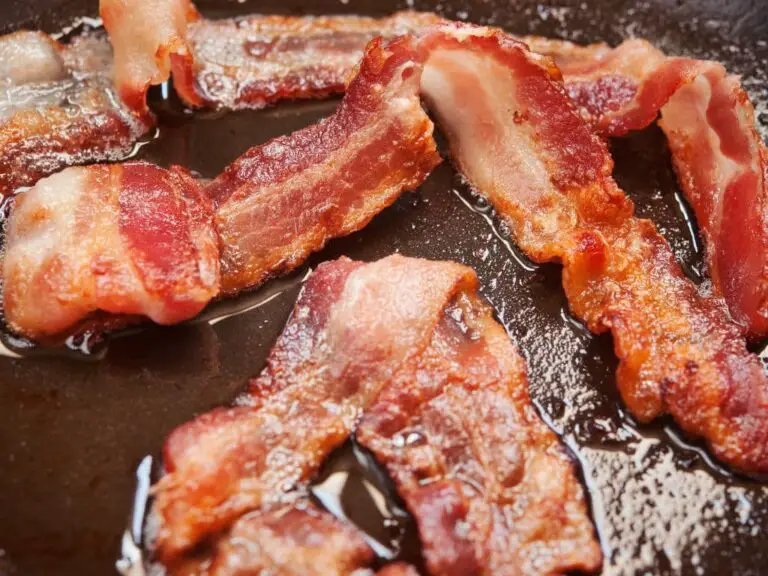How Much Protein Does a 70 Year Old Woman Need Daily?
Getting adequate protein is essential for seniors to maintain strength, energy levels, bone health and overall wellbeing. As we age, our protein needs change and women over 70 may require more protein than younger adults.
Current dietary guidelines recommend 46 grams of protein daily for women over 70, based on a protein intake of 0.36 grams per pound of body weight for a 130-pound woman. However, recent research suggests elderly women could benefit from consuming 29% more protein, equivalent to about 59 grams per day.

This article will examine the recommended protein intake for older women, the benefits of protein for seniors, easy protein sources, whether supplements can help, and how to ensure adequate intake.
What is the Recommended Daily Protein Intake for a 70 Year Old Woman?
The Recommended Daily Protein Intake for a 70-year-old woman is currently set at 0.36 grams for each pound of body weight. This translates to about 46 grams of protein for a woman who weighs 130 pounds. However, recent research from Purdue University suggests that this may be insufficient for elderly women and that a 29 percent increase might be more beneficial. This recommendation is based on the use of a noninvasive method, known as the indicator amino acid oxidation method, for evaluating protein needs. The study shows that as the amounts of amino acids increase in the diet, the body is better able to synthesize proteins, which are crucial in curbing age-related muscle loss.
Researchers propose that exploring protein intake moderately above the current recommended dietary allowance might be helpful. However, there is a need for more research to determine the best amount of protein for people older than 70 to consume in order to retain their functional abilities and health.
While suggesting a consumption consistent with the upper end of the Acceptable Macronutrient Distribution Ranges (AMDRs) – which is as much as 30-35% of total caloric intake, scientists acknowledge that practice limitations may make this level of dietary protein intake difficult.
They recommend high-quality proteins that are easily digestible and contain a high proportion of Essential Amino Acids (EAAs) to lessen the need for diets with an extremely high protein content.
Recommended Dietary Allowance (RDA)
The RDA for protein for women over 70 years old is 46 grams per day. This is the minimum daily amount considered sufficient to meet the needs of 97-98% of healthy individuals in this age group.
Acceptable Macronutrient Distribution Range (AMDR)
The AMDR for protein for older adults is 10-35% of total calories. This means protein should make up 10-35% of the total calories consumed per day.
For a 70 year old woman consuming 2000 calories per day, this would equal:
- Minimum: 10% of 2000 calories = 200 calories from protein/4 calories per gram of protein = 50 grams of protein per day
- Maximum: 35% of 2000 calories = 700 calories from protein/4 calories per gram of protein = 175 grams of protein per day
Nitrogen Balance Studies
Research using nitrogen balance studies suggests the optimal protein intake for older women may be around 1.0 – 1.2 grams per kilogram of body weight per day.
For a 130 lb (59 kg) 70 year old woman, this would equal:
- 1.0 g/kg: 59 kg x 1.0 g/kg = 59 grams of protein per day
- 1.2 g/kg: 59 kg x 1.2 g/kg = 71 grams of protein per day
What are the Benefits of Eating More Protein as You Age?
Eating more protein as you age can have various benefits, especially for elderly women, according to research from Purdue University. This finding challenges the common belief that protein requirements remain the same throughout an adult’s life.
Protein is an essential nutrient required in higher amounts among older individuals due to natural muscle loss, a process that leads to weakness and instability. Increasing protein consumption can support muscle health and potentially promote functional abilities, thereby reducing the risk of falls and mobility issues. It is also critical for overall health, assisting in various bodily functions such as tissue repair and immune function.
Another key finding is that elderly adults may be less responsive to low doses of amino acid intake compared to their younger counterparts. This lack of responsiveness, however, can be overcome with higher levels of protein consumption. Studies suggest that the requirement for a larger dose of protein to generate muscular responses seen in younger adults provides support for a beneficial effect of increased protein in elderly populations.
Therefore, consuming more protein, especially high-quality, easily-digestible proteins containing a high proportion of essential amino acids, could be beneficial for elderly adults. While increasing protein intake to as much as 30%–35% of total caloric intake may prove challenging due to practical limitations, striving towards this goal could significantly improve the health and well-being of the elderly population.
However, further research is required to fully understand the precise protein requirements of older adults.
Consuming adequate protein, especially in amounts at the higher end of recommendations, provides several benefits for older adults:
- Maintaining muscle mass: Protein is essential for building and preserving muscle. More protein can help prevent sarcopenia, age-related muscle loss.
- Preventing sarcopenia: Sarcopenia leads to weakness, mobility issues, poor balance and increased risk of falls. Higher protein intake can help minimize sarcopenia.
- Supporting bone health: Protein is needed to absorb and utilize calcium for bone mineralization. This may reduce risk of osteoporosis.
- Enhancing immune function: Protein supports the production of antibodies and helps maintain the immune system.
- Aiding recovery: Higher protein intake helps the body recover faster from illnesses, injuries or surgery.
What are Some High-Protein Foods That Are Easy to Digest for Older Adults?
Some high-protein foods that are typically well-tolerated by seniors include:
| Food | Serving Size | Protein (g) |
|---|---|---|
| Greek Yogurt | 6 oz | 15-20 |
| Milk | 1 cup | 8 |
| Cottage Cheese | 1/2 cup | 15 |
| Eggs | 1 large | 6 |
| Lean Beef | 3 oz cooked | 21 |
| Chicken Breast | 3 oz cooked | 28 |
| Fish (salmon, tuna) | 3 oz cooked | 19-25 |
| Tofu | 1/2 cup | 10 |
| Beans/Lentils | 1/2 cup cooked | 7-10 |
| Nut Butters | 2 Tbsp | 8 |
For vegetarians/vegans, good plant-based protein sources include:
- Tofu, tempeh, edamame
- Beans, lentils, chickpeas
- Nuts, nut butters, seeds
- Quinoa, buckwheat
- Soy/nut milks, yogurt
- Seitan
Can Protein Supplements Help Older Adults Maintain Muscle Mass?
Protein supplements like protein powders, bars and shakes can be beneficial for some older adults who struggle to meet protein needs through diet alone.
Benefits:
- Convenient way to increase daily protein intake
- Useful when appetite is poor or eating enough protein foods is difficult
- Help maintain muscle if protein from foods is inadequate
Drawbacks:
- May displace nutrient-dense whole foods in the diet
- Possible digestive issues with powders for some
- Higher cost compared to protein foods
When selecting a supplement, look for:
- 20-30 grams protein per serving
- High-quality proteins like whey, casein or soy
- Minimal added sugars, oils, preservatives
Talk to your healthcare provider before taking supplements.
What are the Risks of Not Getting Enough Protein as You Age?
Consuming inadequate protein carries increased risks for older adults, including:
- Muscle loss and sarcopenia – can lead to weakness, frailty, impaired mobility
- Weakened immune system – increased vulnerability to illnesses
- Slower recovery – from wounds, fractures, illnesses, surgery
- Increased risk of bone fractures – due to weakened bones
Low protein intake is extremely detrimental to health in older age. Meeting daily protein needs is essential.
How Can Seniors Ensure They Meet Their Protein Needs?
Here are some tips to help seniors meet daily protein requirements:
- Incorporate high-protein foods at every meal and snack.
- Consider protein supplements if adequate intake can’t be achieved through whole foods alone.
- Monitor protein intake – aim for 1.0-1.2 g/kg body weight per day.
- Adjust protein intake as needed based on appetite, activity levels and health conditions.
- Stay hydrated – drink water, juices, broths to aid protein absorption.
- Exercise regularly to help maintain muscle mass.
- Consult a dietitian if struggling to meet protein needs.
Getting enough high-quality protein is vital for seniors. Consuming protein in line with the higher end of recommendations can promote good health and independence in the senior years.





